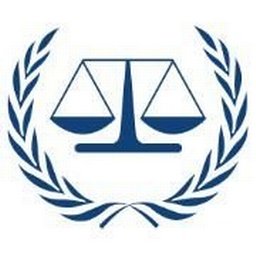A roster of suitable candidates may be established for this post as a result of this selection process for fixed-term appointments against both established posts and positions funded by general temporary assistance (GTA).
Important:
Recruitment for this post in the General Service category is done on a local basis. As a result, staff are generally recruited from the area in which the particular office is located but could be of any nationality. Candidates applying to a post in the General Services category shall meet the relevant employment and immigration requirements in the country of the duty station, including fulfilling residence and work permit conditions.
Applicants will be responsible for any expenses incurred in relation to: visa, travel to and from, and relocation to and from the duty station, in the event of an employment offer.
A staff member in the General Service category who has been locally recruited shall not be eligible for the entitlements and/or benefits exclusively applicable to internationally recruited staff.
Organisational Context
The Victims and Witnesses Section (VWS) organisationally belongs to the Division of External Affairs and Field Operations in the Registry. It provides protective measures, security arrangements, counselling and other appropriate assistance to witnesses and victims who appear before the Court and to others who are also at risk on account of testimony given by such witnesses. The Section may advise the Prosecutor and the Court on appropriate protective measures, security arrangements, counselling and assistance.
The Section is responsible for ensuring that the witnesses appear in the Court appropriately protected, supported and as scheduled by the Chambers. Furthermore, it is responsible for the management of the ICC Protection Programme (ICCPP) and may cooperate with States, intergovernmental and non-governmental organisations in providing any of the protection and support measures stipulated by the Statute.
Duties and Responsibilities
Within this framework, and under the direct supervision of the Associate Team Leader, the incumbent performs the following duties:
Interacts with the ICCPP participants within the framework of approved case management plans and under specific instructions by the Associate Team Leader and Senior Field Case Management Assistant;
Provides psychosocial and other practical assistance to the ICCPP participants with the view of contributing to their efforts to obtain self-sustainability and non-dependence on VWS assistance as soon as practicable. Monitors the progress of the ICCPP participants and reports to the Associate Team Leader respectively;
Executes protection operations relating to threat and risk assessment missions, movement of witnesses for testimony, organisation of video-link testimony, extraction of ICCPP participants and their transfer to third States and administers the initial response system in the field;
Participates in, acts as a resource and executes tasks in connection to VWS operations in the field across various cases and situations;
Provides psychosocial and other practical support to testifying witnesses and assists where required with any administrative or logistical tasks in respect of their appearance in Court. Implements the court room familiarisation protocol, monitors the wellbeing of witnesses during testimony and provides in-court assistance under the guidance of the Associate Welfare Officer;
Imports data to the witness management database and ensures the completeness of record in respect of ICCPP participants and testifying witnesses;
Protects the safety, physical and psychological wellbeing, dignity and privacy of all victims and witnesses, with regard to all relevant factors, including age, health, and nature of the crime, in particular, but not limited to, where the crime involves sexual or gender violence or violence against children;
Maintains confidentiality at all times, respect the interests of the witness, and act impartially when cooperating with all parties;
Conducts other duties as required.
The incumbent, prior to commencing his/her duties, is required to sign a confidentiality agreement with the VWS.
The Chief VWS may request the incumbent to participate in missions to another duty station pending the operational requirements of the VWS.
Essential Qualifications
Education:
Diploma of secondary education.
Experience:
A minimum of six years of progressively responsible relevant experience in assistance to victims and witnesses or protection schemes within court or law enforcement structures, in a national or international witness protection programme or other relevant entity. An advanced or a first-level university degree may be considered as a substitute for two years' working experience only to determine eligibility;
Operational experience in a national or international witness protection programme, law enforcement or security structure or other relevant framework is required;
Experience in working with victims of sexual violence, children, the elderly and the disabled is desirable;
Experience in executing protection operations in demanding circumstances is desirable;
Surveillance and counter surveillance skills and experience are desirable;
Work experience in a conflict or post conflict context is desirable.
Knowledge, Skills and Abilities:
Understanding of witness protection and support operations;
Advanced interpersonal, negotiation and organisational skills;
Ability to deal effectively with victims and witnesses in stressful situations, particularly with those who have suffered trauma;
Ability to work with persons from a wide range of ethnic and cultural backgrounds;
Ability to maintain both internal and external relationships at operational level in matters relevant to the victims/witnesses protection, support and other assistance;
Cultural and gender sensitivity;
Ability to work and operate in a multicultural environment;
Absolute integrity, tact, sensitivity, discretion and good judgment, including particular sensitivity to the needs of victims of sexual violence, children, the elderly and the disabled;
Knowledge of the legal framework of the Court;
Well-developed written and verbal communication skills with a keen attention to details.
Knowledge of Languages:
Proficiency in the working language of the Court, English or French, as applicable to the duty station is essential. Knowledge of the other is desirable. Knowledge of another official language of the Court (Arabic, Chinese, Russian and Spanish) is an asset. Knowledge of local languages is considered an asset.
Purpose
Collaboration
People
Results
ICC Core Competencies
Dedication to the mission and values
Professionalism
Teamwork
Learning and developing
Handling uncertain situations
Interaction
Realising objectives
Learn more about ICC leadership and core competencies.
General Information
- Candidates appointed to posts at a P-5 grade or in the Director category are subject to a maximum aggregate length of service of seven years. This is pursuant to a decision of the Assembly of States Parties (ASP Resolution ICC-ASP/23/Res.2) to implement a tenure policy at the Court as of 1 January 2025.
- The selected candidate will be subject to a Personnel Security Clearance (PSC) process in accordance with ICC policy. The PSC process will include but will not be limited to, verification of the information provided in the personal history form and a criminal record check.
- Applicants may check the status of vacancies on ICC E-Recruitment web-site.
- Post to be filled by a national of a State Party to the ICC Statute, or of a State which has signed and is engaged in the ratification process or which is engaged in the accession process. This is pursuant to a decision of the Assembly of States Parties (ASP Resolution ICC-ASP/23/Res.3) to introduce a moratorium on the recruitment by the ICC of staff of non-States Parties’ nationality.
- In accordance with the Rome Statute, the ICC aims to achieve fair representation of women and men for all positions, representation of the principal legal systems of the world for legal positions, and equitable geographical representation for positions in the professional category.
- Applications from female candidates are particularly encouraged.
- Personnel recruited at the General Service level are not entitled to all of the benefits granted to internationally-recruited staff;
- The International Criminal Court applies the Inter-Organization Mobility Accord and can support secondment of staff from organizations of the United Nations Common System.







